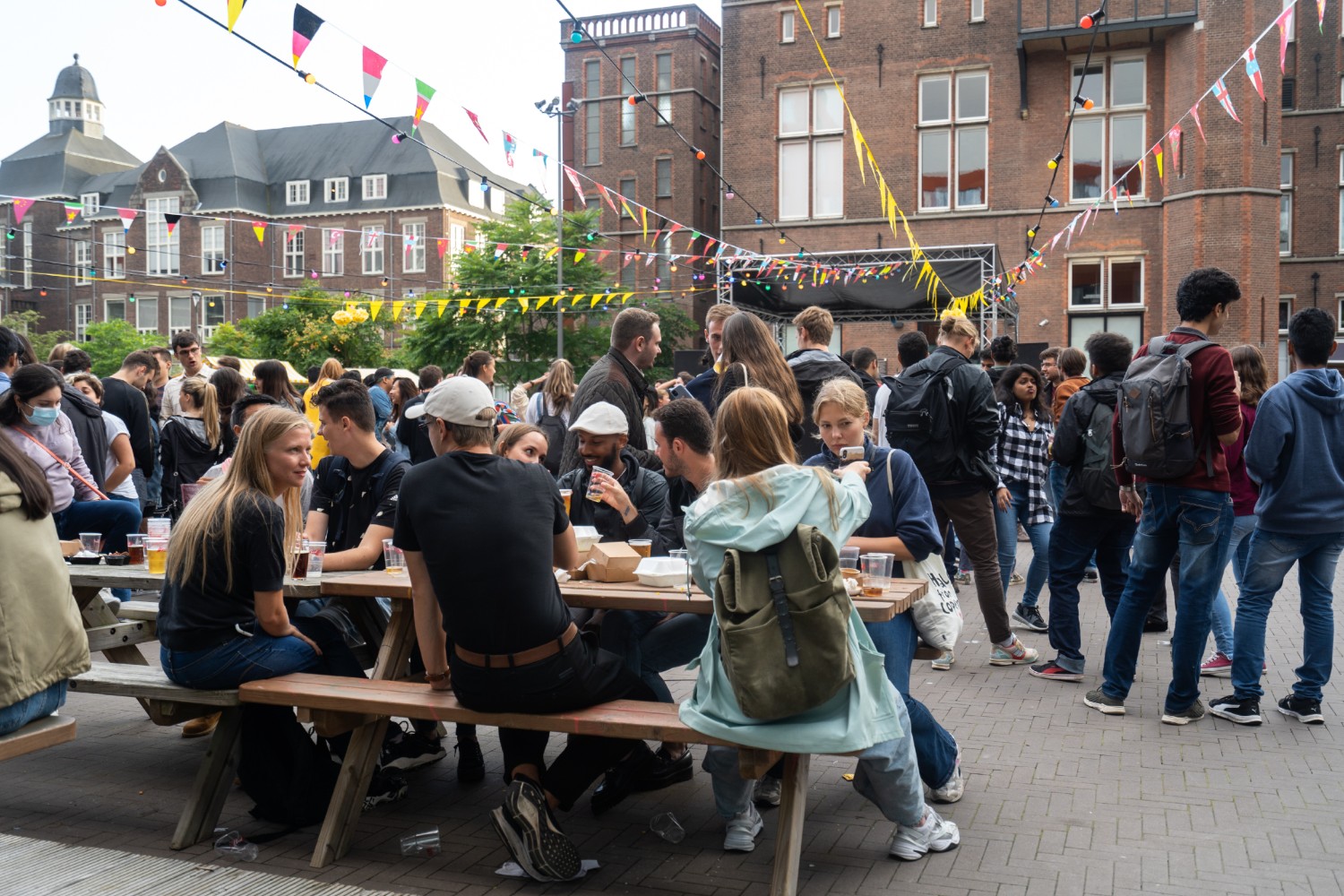The UvA wants to experiment with a quota for international students next year, writes the NRC newspaper. Otherwise, Dutch students would be squeezed out of popular programmes.
Dutch and international students mix at the BASE Festival, set up to welcome new comers to the TU Delft. (Photo: Daniël Korvemaker)
More and more international students are coming to Dutch universities. The opportunities for Dutch students to study are particularly limited in popular studies, which have a numerus fixus. They are being outcompeted, says UvA President Geert ten Dam to NRC.
For years, the universities have wanted ‘instruments’ to help distinguish between international and Dutch students, and to manage the influx.
In an interview with the news agency HOP this summer, Education Minister Dijkgraaf said that “I can fill up the toolbox and then every farmer can maintain his own piece of the dike, but that does not make the dike safe. We need a national view of internationalisation and to know what we all want. That view is still missing.”
Most universities want to limit growth, but not all. Maastricht University President Rianne Letschert, for example, gets a ‘nasty aftertaste’ from the desire to limit the number of international students, she tells NRC.
What about TU Delft?
TU Delft says it strives for ‘a good balance between Dutch and international students’. This applies in particular to programmes that attract many international students, such as Aerospace Engineering and Computer Science & Engineering. Both have a numerus fixus. “Restricting the international intake can help achieve a good balance,” says a TU Delft spokesman.
A number of restrictive measures are already in place: the promotion of TU Delft studies abroad has been replaced by neutral information provision; relatively high tuition fees apply to non-European students; and English language requirements have been raised for master’s studies.
HOP, Bas Belleman | Delta, Jos Wassink
- Read more about the BASE festival
Do you have a question or comment about this article?
j.w.wassink@tudelft.nl


Comments are closed.